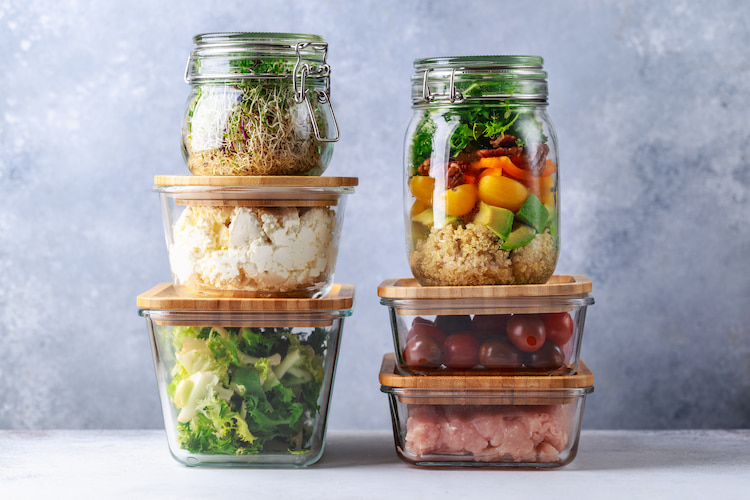Our Work
Food Packaging
Over 10,000 chemicals are used in making and packaging food worldwide, some of which are linked to breast cancer and other health harms. From conveyor belts to sealings on jar lids, toxic chemicals can migrate into food and our bodies. In addition, direct food additives like colorants, flavors and preservatives are another source of toxic chemicals in our food.
BCPP is reducing our exposure to potentially harmful chemicals in our food by advocating for stricter regulations and safer business practices.

Science summary
Chemicals linked to breast cancer are regularly used in food packaging and processing materials. While there may be hundreds of harmful chemicals in our food from contact with these materials, the total number and exact scope of health risk is unknown.
Recent analysis found 189 chemicals linked with breast cancer in materials that contact food and beverages, and this is likely an underestimate. Some chemicals, like BPA (bisphenol-A), ortho-phthalates, and PFAS are linked with many negative health effects, ranging from obesity and diabetes to reproductive problems (infertility, birth defects of male genitals), impaired immune responses, and learning disabilities.
More Science
Tips
Kick the can, get out of plastic, and learn about more healthy ways to reduce your risk.
Tips
What’s happening in policy
Between corporate secrecy around the food industry’s use of chemicals, a lack of adequate U.S. food safety regulations, and poor implementation of existing regulations by the Food and Drug Administration, we are all exposed to harmful chemicals in our food. That’s why BCPP advocates for stronger food safety policies at the U.S. federal and state levels.
Policy
Getting businesses to use safer alternatives
BCPP’s Cans Not Cancer Campaign pressured canned food manufacturers to stop lining cans with BPA (Bisphenol-A). Today, thanks to people like you and our partners who supported the Campaign, manufacturers have largely phased BPA out of can linings. Now, 9 out of 10 food cans are BPA-Free. However, as noted above, many keep their replacement chemicals a secret, so our work is not finished.
Read Our Report
We advocate for companies to get toxic chemicals linked to breast cancer and other health harms out of our food. By identifying harmful chemicals in our food chain, we can hold companies accountable to keeping our food free from toxic chemicals.
BPA Actions
Partners
Our partners in prevention who work to make food packaging safe and non-toxic include the Campaign for Healthier Solutions, Center for Environmental Health, Center for Science in the Public Interest, Clean Production Action, Clean Water Action, Consumers Reports, Defend Our Health, Earthjustice, Ecology Center, Environmental Defense Fund, Environmental Working Group, the Food and Chemicals Alliance, Healthy Babies Bright Futures, Mind the Store, Natural Resources Defense Council, Protect Our Breasts
We want our food toxic-free!
Keep cancer-causing and hormone-disrupting chemicals out of food packaging.
FEATURED VIDEO
BCPP: Exposing the Cause is the Cure
We're preventing breast cancer before it starts by eliminating our exposure to toxic chemicals and radiation.
